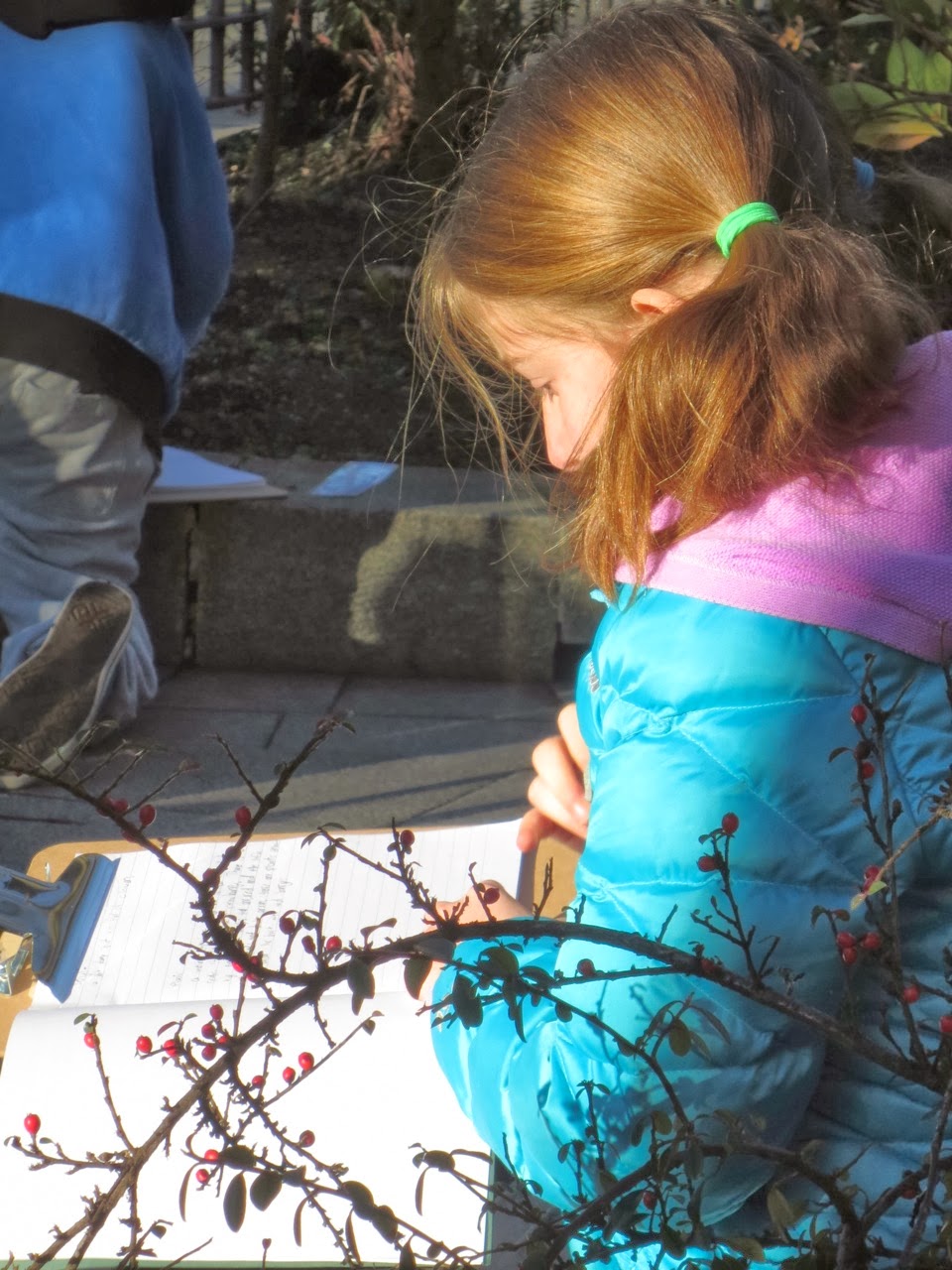A
tweet from Mufi Hanneman, the mayor of Honolulu, reminded me that it was time
to getting going on this blog again.
So
here we are – in the year 2014 or by some Chinese systems the year 4712.
In
either case – sending out wishes for
everyone for a prosperous and bountiful new year.
The
lovely image of the horse leaping into the number 2014 got me thinking about
the way that we humans count the hours, days and years and how important it is
to all cultures to notice the passing of the seasons and to gather information
to be able to see the recurring patterns as we pass through each year. This focus on time passing has led to all
kinds of careful observations and types of measurements.
For
the last couple of years the courtyard in the front of the lower school has
become the focus of much careful measuring and observation by the Grade 3
students.
There
are daily measurements of weather each morning as a small group of
meteorologists record the temperature, humidity, rainfall and cloud
conditions.
At least once each season each student spends some time sitting in the same spot and observing the plants, soil and weather conditions. And if we are lucky some of the local wildlife.




A
fun new addition to the morning weather reports started about a month ago – two
of the Grade 3 meteorologists have been providing the morning weather report
for Ms. Elaine’s Gr 4 class news report.
This
data set builds over the course of the year and provides an important source of
information when the students start to learn how meteorologists answer
questions about weather and climate by looking at long term data.
In
addition to the recording the weather each morning, once a week on Fridays we
take a photo of the sky conditions and a picture of the students with the date
to mark each date that we have cloud conditions. This also serves to record the changes in
the trees as they lose many of their leaves moving from fall into winter and
the decrease in light levels. This
slideshow will give you a feeling for how things have changed over the last six
months as we have traveled from fall into winter. We are just now starting to see the light
levels returning and I no longer have to turn off the automatic flash feature
each Friday when I take these photos.
Thankfully, within another three weeks it will be back to bright morning
light again at 8:15 am in the morning.
We are looking forward to spring and the leaves returning to the trees.
Finally,
a small thought for you here at the beginning of the year of the horse – This
is a quote from an opinion piece in the NYTimes written by Richard A. Friedman, a professor of
clinical psychiatry at the Weill Cornell Medical College. I find his advice for
making use of the human ability to change our perception of time passing very heartening – you
can slow down time! “It’s simple: if you
want time to slow down, become a student again. Learn something that requires
sustained effort; do something novel. Put down the thriller when you’re sitting
on the beach and break out a book on evolutionary theory or Spanish for
beginners or a how-to book on something you’ve always wanted to do. Take a new route
to work; vacation at an unknown spot. And take your sweet time about it.”
http://www.nytimes.com/2013/07/21/opinion/sunday/fast-time-and-the-aging-mind.html










